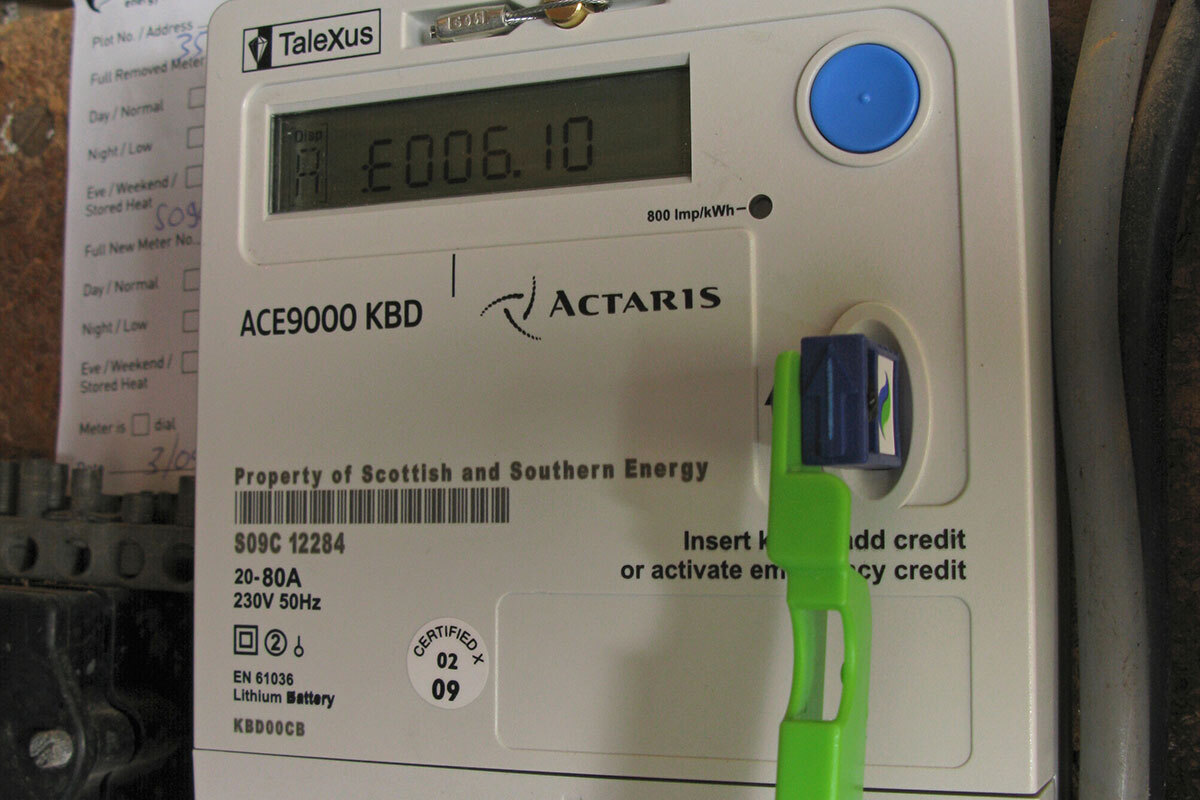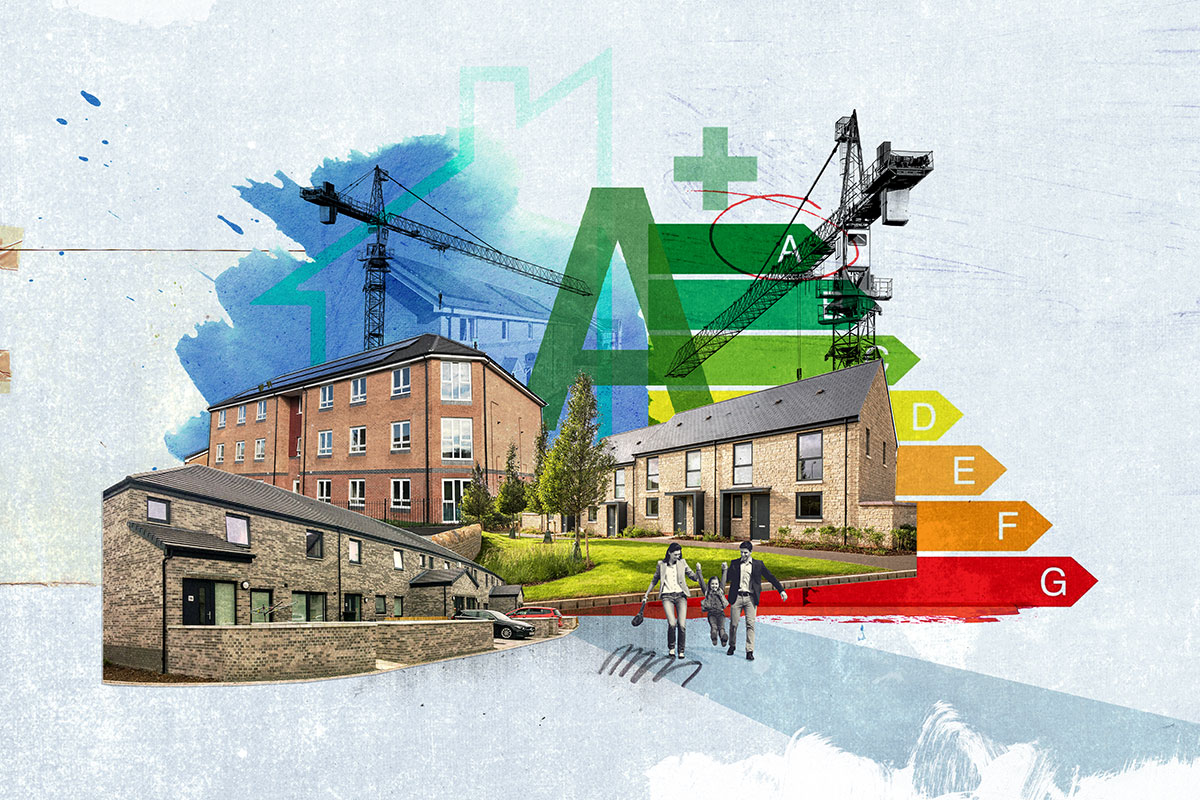For people on prepayment meters, the Truss cap isn’t enough
Matthew Cole argues that the government’s price cap will not be enough to protect people who rely on topping up prepayment meters to afford electricity and gas this winter
To borrow a well-known phrase from a popular TV series, “winter is coming”. For the four million homes fitted with a prepayment gas and/or electricity meter and the people who live in them, it could be a particularly harsh one.
The announcement by prime minister Liz Truss to freeze average energy bills at £2,500 will be a welcome relief for the millions of households across the country who stood to see their monthly fuel costs rocket in October. But for those already struggling to pay the current average fuel bill of £2,017, the new cap is still an increase for them.
“Unlike direct debit customers, who can soften the blow of energy price increases by spreading the extra costs over 12 months, prepayment meter users feel the impact far more acutely”
At a time when the general cost of living is soaring, finding the extra money each month to cover higher fuel bills is going to be challenging, if not impossible, for families from every socio-economic background.
But it’s vulnerable and low-income households, many of which have no other choice but to use a prepayment meter for their energy supply, that will be hardest hit in the pocket.
Unlike direct debit customers, who can soften the blow of energy price increases by spreading the extra costs over 12 months, prepayment meter users feel the impact far more acutely. Without credit built up over the summer or a buffer to tide them over the heating season and cold winter months when gas and electricity usage is at its peak, if they have no money, they have no energy.
“It is inevitable that more prepayment meter customers will be forced to self-disconnect and live without the essentials needed to survive during winter. It has now gone beyond a choice of heating or eating, for some people it’s life or death”
In January, prepayment meter customers paid on average £183 for a month’s energy. In January next year, even after the cap on energy prices announced by the government, the same customer will need to pay £282. This compares with £142 in January 2023 for the average direct debit payment.
At these levels, household budgets will be stretched to breaking point and it is inevitable that more prepayment meter customers will be forced to self-disconnect and live without the essentials needed to survive during winter. It has now gone beyond a choice of heating or eating, for some people it’s life or death.
The Fuel Bank Foundation was set up with the sole purpose of helping people who cannot afford to top up their prepayment gas and/or electricity meter. To date, more than 650,000 people have been given emergency top-up fuel vouchers by the charity. The £49 voucher (£30 during summer months) provides up to a week’s worth of energy and, importantly, respite and time to work through simple and easy to action advice from the foundation.
Since the start of the COVID-19 global pandemic in 2019, we have seen the number of people turning to us for help increase considerably. Following the energy price cap increase in April this year, we saw a record number of people accessing our services, and we’re now approaching 2,000 people helped every day.
We are currently seeing demand for our service similar to peak winter levels, even though it’s only September, and this is before we get the usual seasonal spike when people switch their heating on and generally use more energy in their homes. If demand continues to increase over the coming months, we may be forced into a position of having to ration the support we provide.
“Funding should be made available to better insulate homes, at pace, of some of the poorest in society so we can move beyond having to provide crisis financial support to keep homes warm”
The Fuel Bank Foundation has been calling on the government to do more to help those who are the most vulnerable and at risk of living without energy this winter. A price freeze is only a temporary solution to what is a much bigger and deeper-rooted problem.
Notwithstanding the challenges of securing future gas and oil supplies and the conversation around fossil fuels versus renewables, longer term it is essential the government addresses the country’s housing stock and the amount of energy being wasted by homes with poor or no insulation, since this is also a way to reduce bills.
Funding should therefore be made available to better insulate homes, at pace, of some of the poorest in society so we can move beyond having to provide crisis financial support to keep homes warm.
We also need to ensure a fair approach to guarantee that those who are struggling and who spend more than the average to heat their homes do not lose out in real terms through no fault of their own because they cannot afford efficiency measures.
The country is facing an unprecedented cost of living crisis. In these challenging times, strong leadership and creative thinking is required to ensure no one has to live in a cold, dark home this winter.
Matthew Cole, head, Fuel Bank Foundation
Sign up for our asset management and sustainability newsletter
Already have an account? Click here to manage your newsletters
Sign up to the Tenant and Resident Engagement Conference
Join us at this leading one-day event designed to help landlords and tenants achieve meaningful engagement following the Social Housing White Paper sector reforms, covering culture change, co-production and how to engage tenants on climate change, building safety, disrepair and more.
There is a free tenant place for every delegate pass booked by a landlord.
To view the agenda and book your delegate pass, click here.










